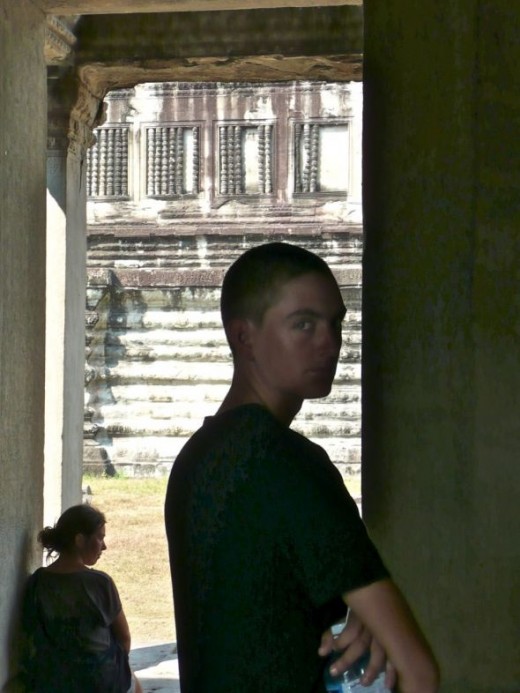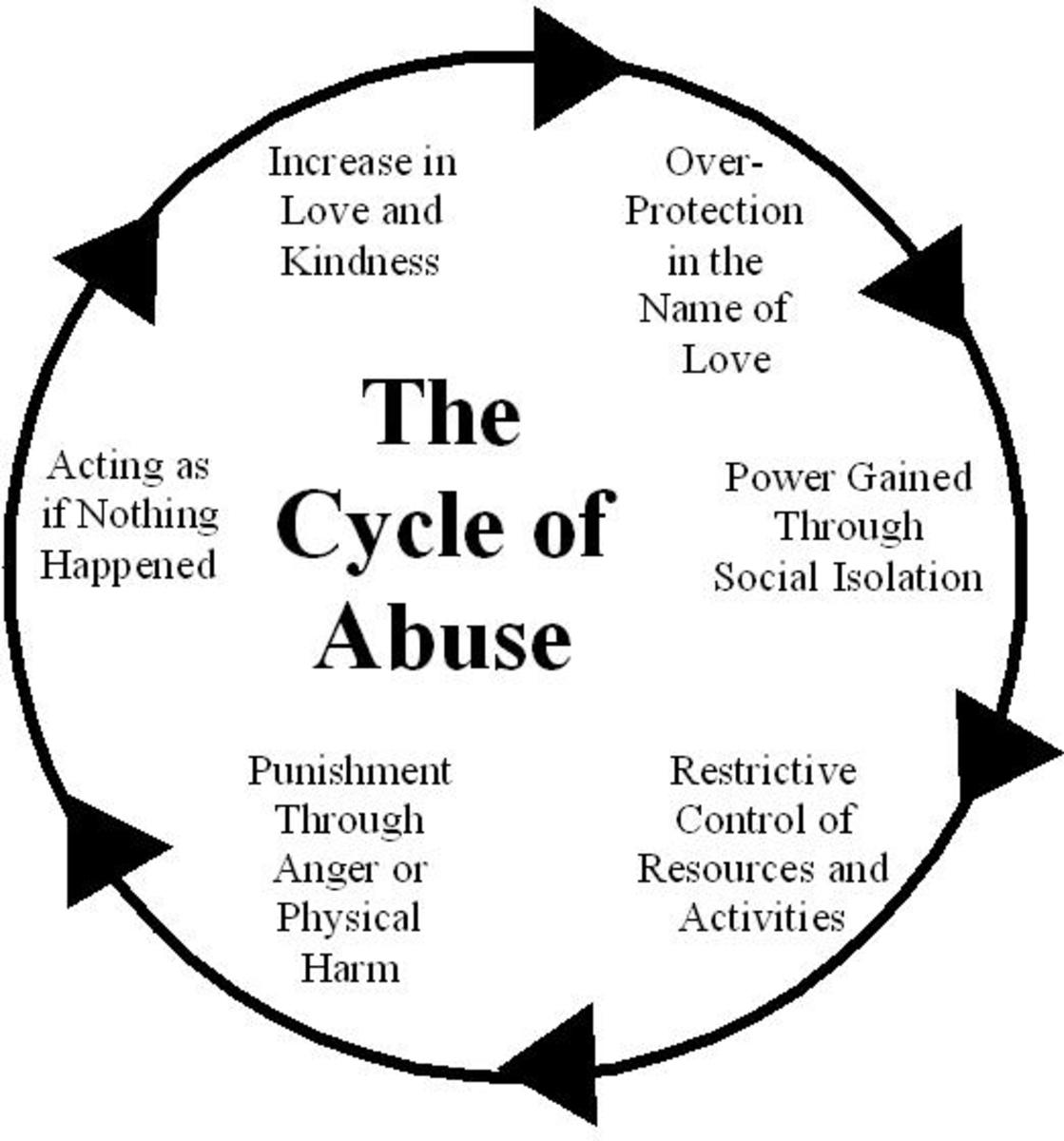Father Son Relationships

Father Son Relationships
Recognise these statements?
"My dad didn't show much interest in me or what I did, other than to tell me when I'd done something wrong."
"I always felt it was my job to show my kids how to live right - keep them on the right track. I should have listened to them more."
"I wish I'd spent more time with my kids when they were young; I get on well with my grandchildren, but I feel I hardly know my own kids at all."
"To be honest, my dad and I are a closed book."
These are things fathers and sons have frequently said when asked about their relationships. Why is it such a common problem? This lens tries to find answers to that question and perhaps to offer some simple solutions.
At the end I invite fathers and sons to submit their own comments and experiences. Those submissions will come to form part of what's on offer here. I am merely starting the ball (or wheel) rolling.
What's Your Problem?
Busy Dad - Grumpy Teenager
Fathers and their sons are notorious for having difficult relationships, especially when the sons reach adolescence. The traditional 'Dad' role in a family does not help. Many fathers feel their job is to go out and earn the wherewithal to provide the raw materials of family life - house, car, food, utility bills and holidays etc. Many fathers too easily fall into a pattern of leaving the woman (mother / wife / partner) to deal with the kids. Even worse, the father is often the last resort for disciplining the kids - especially for boys. This has led to generations of fathers and sons who are unable to communicate with each other normally or, God forbid, to be friends. Each generation learns the bad stuff from the last and so it is constantly reinforced. So many of society's ills lead back to these bad relationships. It's a hard cycle to break. Most fathers and sons try to avoid the issue; the last thing they feel comfortable doing is talking about it together. This blog hopes to share some #Father-Son Relationship experiences in the hope of us learning from each other's mistakes and successes.
To instruct wisely, and be obeyed.
My own experience in this area has been somewhat traumatic. I was a first child born in 1958 to young parents. My father was 21 when I was born and my mother around 24. My dad was a fun-loving man who had a close and very happy relationship with my mum. He was good with kids. I think my parents were quite traditional (maybe everyone was then) and although he was overwhelmingly happy when I was born, he seems to have quickly begun to see his fatherly role as one of needing to 'instruct wisely and to be obeyed'. I was rebellious almost from the moment of birth. When faced with rules or lectures about right and wrong, it seemed to be in my essence to resist. To disobey. This began a lifelong battle with my father, who was new to the job. He seems to have been determined not to give in like his own father (the husband of a very determined wife). His own father had allowed him to do very much as he liked and had not been at all strict. The more he tried to teach me right and wrong, the more I challenged him. I soon took this to crazy levels. If my parents told me 'don't touch that it's hot,' I'd have to touch it. They lectured me about the dangers of the main road outside our house. At 3, I began to find escape routes from the garden, going off into town on my own, leaving my mother searching the streets and eventually calling the police. The more they warned me and constrained me, the more determined I became to defy them. My mother worried. My father was cross. He needed to be more strict, he would tell himself. And so it continued, right into adolescence when my rebelliousness became more dangerous and often involved breaking the law. It stressed him out, my mother too, but he took it worst. Eventually at 15 I began to feel sorry for what I was doing to him. He was 37 and trying to focus on his job as a newly promoted army officer. I tried to tell him, the day he drove me back to boarding school, that I was sorry for all the trouble; the police on the doorstep etc. I found it hard to communicate my feelings in the way I could with my mother. I kept quiet and decided to save it for another time. The next day he died of a burst artery.
How did it ever get to that, I ask myself looking back on it? He was a lovely man who loved my brother and I. How did we end up with each of us feeling the other was determined to ruin the other's life? Surely I was not born a malevolent child? Could this not have been spotted early on and put right?
Where does all this come from?
My mother and my wife, both amazing women in different ways, have helped me to fathom the complex reasons behind these tragic circumstances. My parents seem to have been very fixed in stereotypical parental roles. They were young parents, so that is hardly surprising. My father, feeling he was getting it wrong with me, saw the answer was as him needing to be more strict with me, at least at first. He did try other, more liberal strategies later, but I fear that for me the gauntlet had already been thrown down. Everything he did seemed to me to be a 'strategy.' In fact by the time I was around ten, I saw most parents, teachers, headmasters etc as having a strategy. A strategy to condition kids to doing what they were told. A strategy for producing conditioned, obedient adults who towed the line and didn't rock the boat. These were strategies I had to resist; destroy even. They were a threat to my individuality, in the most Orwellian sense. My father had come to represent, for me, the principle agent of this movement to condition the next generation. Clearly my view of the world was extreme and my methods of resistance more so. Not long before he died, he predicted to my mother that I'd end up in prison. I wonder now, if he hadn't died at that point, maybe I would have ended up in prison; labelled a dangerous anarchist by the repressive society that had tried to condition me. For whatever reason, I didn't. Maybe because the person I had chosen as my prime adversary had gone.
It's good to talk.
From the age of 15, when my father died, to around 50, I remained tortured by the sense that my battle with my father had brought about his death. The truth is, I could see how my own life had benefitted from his death; not so much from my release from his attempts to discipline me but by the self-reliance I had to develop once I was fatherless. I learned to accept it over the years, but a sense of guilt remained hanging over me, along with terrible feelings of regret. I looked at my own lovely children and how they would have benefitted from him as a grandfather and he from them as grandchildren. I longed for him to see how I had not turned out so bad after all. Most of all, I longed to talk to him about where we had both got it so wrong. I discussed this with my wife and with other men. It seemed other men had experienced the same problems with their fathers, albeit with behaviour less extreme than mine. What horrified me was that those men still found themselves unable to talk about these things with their fathers while they were still alive. They wanted to, but felt unable to have that conversation. I pleaded with them (and still do) not to wait until it was too late.
So, what happened when I was 50?
Largely thanks to the efforts of my wife (luckily she is a family therapist) and to several very helpful conversations with my mother, things did get better once I had my own children. My wife taught me how telling my dad the things I wanted to say in a letter, made me feel much better, even though he was long dead. It was not too late. Having children made me realise how important it was not to fall into the same pattern, especially once I had a son (the middle child of three). Despite my own traumatic experiences, I have to say I found it hard not to repeat those patterns. I developed a powerful sense of my responsibility as a father, to provide for his family. Gradually work began to overwhelm my time and my energy in a way I could never imagine it would. I was contradicting all I had stood for, for goodness sake! Luckily (some might call it fate), something happened to change my direction. When my son was ten, he asked me to take him on a bike ride. We had a good friendly relationship compared to most, although I could still see in him a slightly worrying preoccupation with pleasing me and an ever-present sensitivity to feelings that he might have got something wrong. I took him on the bike ride (20 miles each way) with an overnight in a frozen tent a week before Christmas. He loved it and so did I. My dad never did anything like that with me, I thought to myself.
Riding 10,000-miles in my father's shoes.
It was after we returned home from that bike ride, that my son Sam asked me if I'd cycle to Japan with him. He didn't know how far it was but it felt right to go along with his idea. My wife encouraged me to plan for it. I had 8 years after all. That 10,000-cycle trip did happen and it changed my life. Not because of the physical achievement or the adventure, which were great, but because of what happened during our trip. It always seemed clear to me that I was making that trip for Sam's benefit. It was his coming of age experience. However, that's not how it seems now. As I said, Sam and I always got on well, but during that trip we found each other very hard to bear. He was 18 and the last thing he wanted to do was spend 10 months with his dad. He wanted to break free of his parents. I found the conflict hard to deal with, cycling along each day with his eyes burning into my back. What had I done to deserve this, I wondered? Then I realised. I was being repaid for how I'd been with my father. I thought about it over the 80-odd miles we cycled each day. I had plenty of time to think. I asked myself how I might have been with my own father on a trip like this. I knew the answer: utterly intolerable and intolerant. Over those months I came to see why my father had been the way he was with me and why I had responded in the way I had. The issues that I had believed could not be put right once my father was dead were suddenly resolved. Most important of all, I realised that it was Sam who had brought this all about. It felt almost spooky. My father acting through my son perhaps?
The child is father to the man.
So said Gerard Manley Hopkins in a poem my eldest daughter delighted in reciting. I should have taken it as an omen. What I learned on that epic trip was this: As parents, and fathers in particular, we see our role as one of teacher to our children. Nowhere is this stronger than in a father's sense of duty to instruct and set an example to his son. Of course there are practical reasons for this being so, but all too often we see it as our only role. It is one way traffic. Mistake No1... continued
The Child is Father to the Man - Learning to listen to our children

As I began to say in the previous module, whilst cycling 80-odd miles a day with my son for 9 months I found myself comparing my relationship with my own father and came to realise that as fathers, we see our role as:
a) to provide the material needs (shelter, food etc)
b) to teach our sons how to be men and to set them a good example
Most of us seem to see that far too rigidly. Hence we do not really listen to our sons enough (at least they are sure we don't listen at all). The truth is, I have found, that children (especially our own) can teach us much. This is not the same kind of teaching that adults do. At least when they are very young, children don't have much experience to draw upon, so there's not so much information they know that we don't. But children, even very small children, can teach us in other ways. So often in life we learn some hard lesson and realise that somewhere deep inside we must have known that thing all the time. Sometimes we just can't see it despite it being as plain as the nose on our face. These are the things we can learn from children. Why? Because they see these things from living around us and growing up with us. They don't have so much other stuff to distract them when they are small. It may not be obvious to us, for example, that we spend too much time sitting hunched over a laptop and that this is the cause of a recurring bad neck. Children notice. The great thing is that if you ask them for their opinion they will tell you. But we don't ask them. Who would ask their 6yr old child why you suffered from terrible neck pain? You'd ask a doctor, right? The same applies to asking your child why you are unhappy (depressed). They may understand better than anyone and be able to tell you with great clarity, because small kids just say it like it is. They won't spare your feelings like a friend will.
When I first discovered this phenomenon, I felt an overwhelming sense of wonder at it. I tried it out more and more and was amazed by the results. How was it that my kids were so wise? Later though, I realised that it was not wisdom exactly. I was simply using my kids as a kind of reflective sounding-board. As interpretors. Apart from the things they picked up living around me and observing me, the things I knew deep down, but couldn't see or make sense of, came out in what I said to them and how I asked them questions. They responded instinctively and honestly. Sometimes what they said seemed useful to me, sometimes not. At the very least it seemed that they liked being asked. The value of the last point can't be underestimated in fact.
So in effect what occurred with me was that my son asked me to go with him on an ambitious cycle expedition. I saw this as an opportunity for me doing something to help him learn how to be a man. In actual fact, he tells me now that his motivation was to get me to do more with him and to achieve it by asking me to do something he knew I loved. The result was that he taught me how to be a better father. This didn't happen because he knew so much more than me about how to be a good father. The knowledge was there in me from my experiences with my own father, but I needed a way of unlocking that knowledge and relating it to real life. Sam, my son, unlocked it.
So I now see that learning to be a better father is a matter of allowing our children to unlock what we have already learned, but are unable to put into practice without their help. I also see how the act of asking them for their advice does so much to create a relationship where good can prosper and where both parties can benefit from the other. It sounds so obvious of course, but then fathers can be the most pig-headed of people.
Father son relationship books on Amazon - Get books on this subject
A list of books on the subject of Father-Son Relationships.
These books are informative and make enjoyable reading.



The idea of this blog is to help each other by detailing our own experiences as well as the strategies we may have learned for avoiding the age-old problems such as I have talked about above. You needn't submit your full name if you don't want to and if you do, you can be assured it would never be re-quoted anywhere by us.





